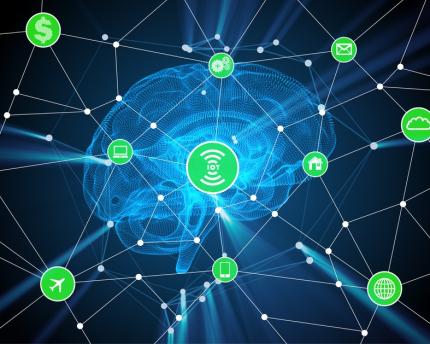Will artificial intelligence save the planet?

Artificial intelligence can provide reliable data for scientists.
-- David James, Chico, California
Artificial intelligence, defined as the capability of machines to imitate intelligent human behavior and learn from data, is considered by many to be the final frontier of computing. And environmentalists and tech companies are now harnessing the power of AI in service to the environment.
Consider that Microsoft announced in December 2017 that it is expanding its “AI for Earth” program and committing $50 million over the next five years to put AI technologies in the hands of individuals and organizations working to solve global environmental challenges, including not only climate change but also water, agriculture and biodiversity issues. Lucas Joppa, Microsoft’s first chief environmental scientist, is convinced that AI is now mature enough and the global environmental crisis acute enough to justify the creation of an AI platform for the planet. “I believe that for every environmental problem, governments, nonprofits, academia and the technology industry need to ask two questions: ‘How can AI help solve this?’ and ‘How can we facilitate the application of AI?’,” Joppa said.
An older, but rapidly growing project, eBird, demonstrates the power of coupling human observers with AI algorithms to provide a source of reliable data for scientists and environmental decision-makers. Based at Cornell University’s Lab of Ornithology, eBird engages a global network of bird watchers to identify bird species and report their observations through the eBird website or mobile app. To deal with the variability in observations the volunteers make, AI filters observations through collected historical data to improve accuracy. And now with more than 500 million bird observations recorded through this global database, Microsoft’s Azure Cloud Computing Program is enabling calculations that once took upward of two to three weeks to be accomplished in hours.
California’s One Concern uses AI technology to identify and mitigate risk stemming from natural disasters. Last year, natural disasters caused a record-breaking $300 million in damage in the U.S. alone. One Concern’s platform can predict the impacts of climate change-driven events and disasters such as earthquakes, floods and fires at a high degree of resolution and accuracy so that communities can better prepare and respond. Damage from an earthquake can be predicted with 85 percent accuracy within 15 minutes, and flood damage is predicted days ahead of storms.
Lastly, whale field research is being revolutionized by AI and drone technologies. “SnotBot,” which doesn’t exactly sound sophisticated, uses drones that fly well above the surface of the water where the whales are never touched or approached closely. Snotbots hover above a surfacing whale and collect the blow (or “snot”) exhaled from its lungs, then return back to researchers about a half mile away. Blow samples reveal a vast amount of biological data, including stress hormones and environmental toxins. Prior to SnotBot, data samples of wild whales were gathered by shooting sampling darts from crossbows into the mammal from a loud boat.
“It’s not just all about Silicon Valley building cool Silicon Valley things,” says Ian Kerr, who manages the SnotBot program. “It’s how AI could actually help us save the planet and solve scientific mysteries.”
Resources:
Cornell University’s Lab of Ornithology
Related:
Could robots leave us jobless by 2025?
This column was reprinted with permission. EarthTalk is produced by Roddy Scheer and Doug Moss and is a registered trademark of the nonprofit Earth Action Network. To donate, visit www.earthtalk.org. Send questions to: question@earthtalk.org.
Like us on Facebook and tell us what you think.

